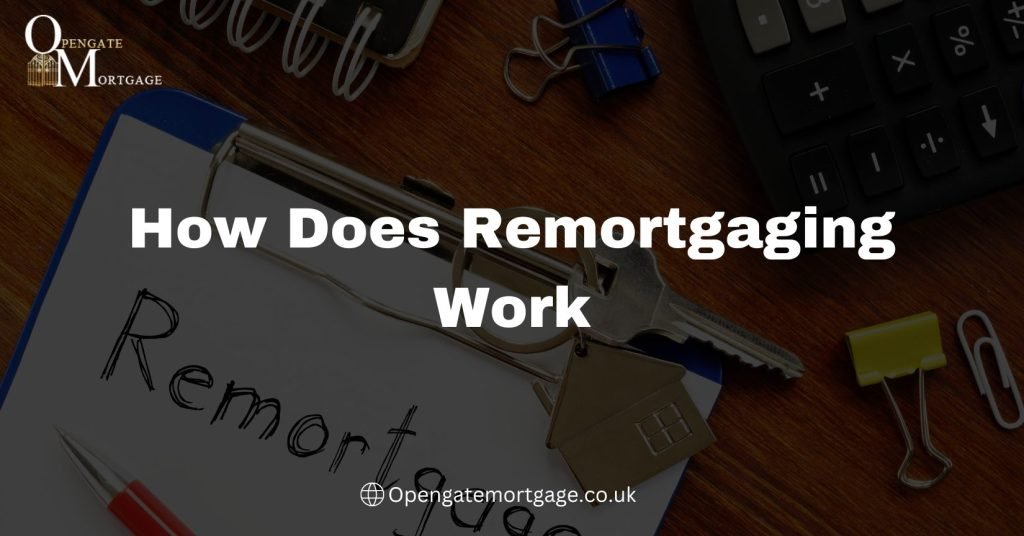A debt management plan may seem like an attractive option if you’re struggling to repay your unsecured debts each month. While a DMP can help make payments more affordable by reducing interest rates and consolidating multiple debts into one lower payment, it’s important to understand how it may impact your mortgage. As you consider a debt management plan, you’ll want to check with your mortgage lender to determine if it will affect your current mortgage terms or future borrowing ability. In this articles you will come to know that does a debt management plan affect your mortgage

How a Debt Management Plan Works
A debt management plan (DMP) is an agreement between you and your creditors to repay your debts over time through reduced payments. A DMP can help make your payments more affordable, but it may affect your ability to qualify for a mortgage.
When you enter a DMP, your creditors may close your accounts or restrict future use. Closed accounts and high debt ratios can hurt your credit score and credit report, making you appear riskier to lenders. However, DMPs also show creditors you’re committed to repaying your debts, which some lenders may view positively.
To qualify for a mortgage, most lenders require a minimum credit score, low debt-to-income ratio (DTI), and a clean credit report. A DMP may impact these eligibility factors:
- Credit score: Your score may drop initially due to closed accounts and high balances. But on-time DMP payments can help rebuild your score over time.
- DTI ratio: Your DTI compares your monthly debt payments to your income. Lower DMP payments will improve your DTI, making you a more attractive borrower.
- Credit report: A DMP will be listed on your credit report, which may concern some lenders. However, a long-standing DMP with a good payment record shows your ability and willingness to repay debt.
While a DMP may pose some challenges to mortgage approval, especially soon after starting the plan, it can strengthen your financial profile over the long run. Be upfront with your lender, provide details about the DMP, and take steps to improve other areas like limiting new debt and paying bills on time. With determination, you can achieve mortgage eligibility despite having a debt management plan.
Impacts to Your Credit Score
A debt management plan (DMP) can negatively impact your credit score and mortgage eligibility. By enrolling in a DMP, you are acknowledging financial hardship and difficulty paying off debt, which credit scoring models view negatively.
Your credit score may drop once creditors are notified of your DMP and close your accounts. Closed accounts lower your credit limit and increase your credit utilization ratio, both of which can reduce your score. The impact is often most significant in the first few months of the DMP. However, if you make on-time payments through the DMP, your score may gradually improve over time.
Mortgage Eligibility
Being in a DMP may make you ineligible for a mortgage until the plan is complete and your credit has recovered. Mortgage lenders view DMPs as a sign of financial instability and risk. They typically want to see at least 12-24 months of on-time payments and improving credit scores after a DMP before approving a mortgage.
Some lenders may consider approving a mortgage if your DMP payments are made automatically from your bank account, the plan has been in place for at least a year, your credit limits have not been cut dramatically, and your credit score is still relatively good. However, you will likely face higher interest rates and down payment requirements.
The impacts of a DMP on your mortgage eligibility can last for several years after completing the plan. Multiple successive DMPs, also known as “debt recycling,” are viewed especially negatively and can bar you from a mortgage for a longer period. In summary, while a DMP can be a responsible way to repay debt, you must go into it with realistic expectations about the consequences it may have on your credit and access to mortgage financing.
Qualifying for a Mortgage With a Debt Management Plan
A debt management plan (DMP) can help you pay off unsecured debt by consolidating payments into one lower monthly amount. However, having a DMP may impact your ability to qualify for a mortgage. Lenders view DMPs as a sign that you have had trouble paying bills in the past and may see you as a higher risk.
Qualifying for a Mortgage
When applying for a mortgage, lenders will evaluate your credit report and debt-to-income ratio. A DMP will be listed on your credit report and may lower your credit score, making you appear less creditworthy. Your debt-to-income ratio compares your monthly debt payments to your income. A DMP may increase this ratio, making you seem overextended.
However, a DMP can also demonstrate your ability to pay off debt in a responsible manner over time. Some steps you can take to improve your chances of mortgage approval include:
•Make DMP payments on time – A good payment history shows lenders you can handle debt responsibly. Late or missed payments severely hurt your chances.
•Reduce other debts – Lower balances on credit cards and other bills will improve your debt-to-income ratio. Pay off collections or charge-offs if possible.
•Check your credit – Review credit reports to ensure there are no errors. Dispute any incorrect information with the credit bureaus to get it corrected.
•Build credit – If needed, you can take out a small installment loan and pay it back on time to build a good credit history. Secured cards are another option if you have poor or no credit.
•Save for a down payment – Having a down payment of at least 20% of the purchase price signals to lenders you are financially prepared to own a home.
•Apply with lenders familiar with DMPs – Some lenders may be more flexible in their underwriting for borrowers with a DMP. Ask lenders about their experience lending to those with debt management plans.
With time and diligent work, you can qualify for a mortgage after enrolling in a DMP. Staying committed to your plan and taking steps to strengthen your financial profile will help overcome the challenges of getting approved. While it may take effort, homeownership is still possible.
Options for Obtaining Mortgage Approval
A debt management plan (DMP) can impact your ability to obtain mortgage approval. When you enroll in a DMP, your credit report will show that you have entered into an agreement with your creditors to repay your debts. This can lower your credit score and credit rating, making mortgage approval more difficult.
However, a DMP can also help you pay off your debts in a structured manner and may be viewed positively by some mortgage lenders if you have made consistent on-time payments for at least 12-24 months. Some options to explore for mortgage approval include:
Low down payment mortgage programs
Programs like FHA loans, VA loans, and USDA loans allow down payments of 3.5-5% of the purchase price. While your credit score still matters, the lower down payment means the lender is taking on less risk, which can help with approval.
Alternative credit data
Some lenders use alternative credit data like rent, utility, and cell phone payment histories to help assess your creditworthiness. If you have a good payment record, it can help supplement or offset negatives on your credit report.
Subprime lenders
Subprime or “non-prime” lenders specialize in lending to borrowers with credit challenges. They may charge higher interest rates to account for the perceived risk, but can be an option if prime lenders deny your application.
Short-term loan
Consider taking out a small installment loan and paying it back on time to begin re-establishing good credit. After 6-12 months of on-time payments, apply for a mortgage and let the lender know you have been working to rebuild your credit. Your DMP payment history and the installment loan can demonstrate your ability and willingness to repay debt.
With time and consistent payments, the impact of your DMP on mortgage approval can lessen. Be upfront with lenders about your situation, explore alternative options, and keep working to improve your credit. With determination, you can achieve the goal of homeownership, even after entering a debt management plan.
Conclusion
A debt management plan is a viable solution to help you become debt free, but it does come with responsibilities and consequences to be aware of before pursuing this path. Your credit score will likely drop initially, and you will need to commit to the payment plan set up with your creditors to ensure your debts are satisfied.
However, if done correctly, a debt management plan can help you pay off your debt in a structured manner and rebuild your credit over time. While a debt management plan may impact your ability to obtain a mortgage in the short term, the long term benefits of becoming debt free and improving your financial wellbeing can put you in a much better position to buy a home, and achieve financial freedom, in the years to come.
People Ask Questions About Does A Debt Management Plan Affect Your Mortgage
What is a Debt Management Plan (DMP)?
A Debt Management Plan is a structured financial arrangement that helps individuals repay their unsecured debts over time through a third-party credit counseling agency. It typically involves negotiated lower interest rates and consolidated monthly payments to creditors.
Will participating in a Debt Management Plan affect my ability to get a mortgage?
Participating in a Debt Management Plan may impact your mortgage eligibility, but it does not necessarily disqualify you from obtaining a mortgage. Lenders will assess your overall financial situation, including your credit history and debt-to-income ratio, to determine your eligibility and loan terms.
How does a Debt Management Plan affect my credit score?
Enrolling in a Debt Management Plan can initially cause a slight dip in your credit score. However, as you consistently make on-time payments through the plan, your credit score may improve over time due to reduced debt balances and better debt management.
Can I apply for a mortgage while on a Debt Management Plan?
Yes, you can apply for a mortgage while on a Debt Management Plan. However, it is essential to inform your mortgage lender about your participation in the plan during the application process. Some lenders may consider this when evaluating your mortgage application.
How do mortgage lenders view Debt Management Plans?
Mortgage lenders may view Debt Management Plans differently. Some lenders may see it as a responsible effort to manage debt, while others may perceive it as a sign of financial hardship. Be prepared to explain your reasons for enrolling in the plan and demonstrate your ability to manage your finances effectively.







